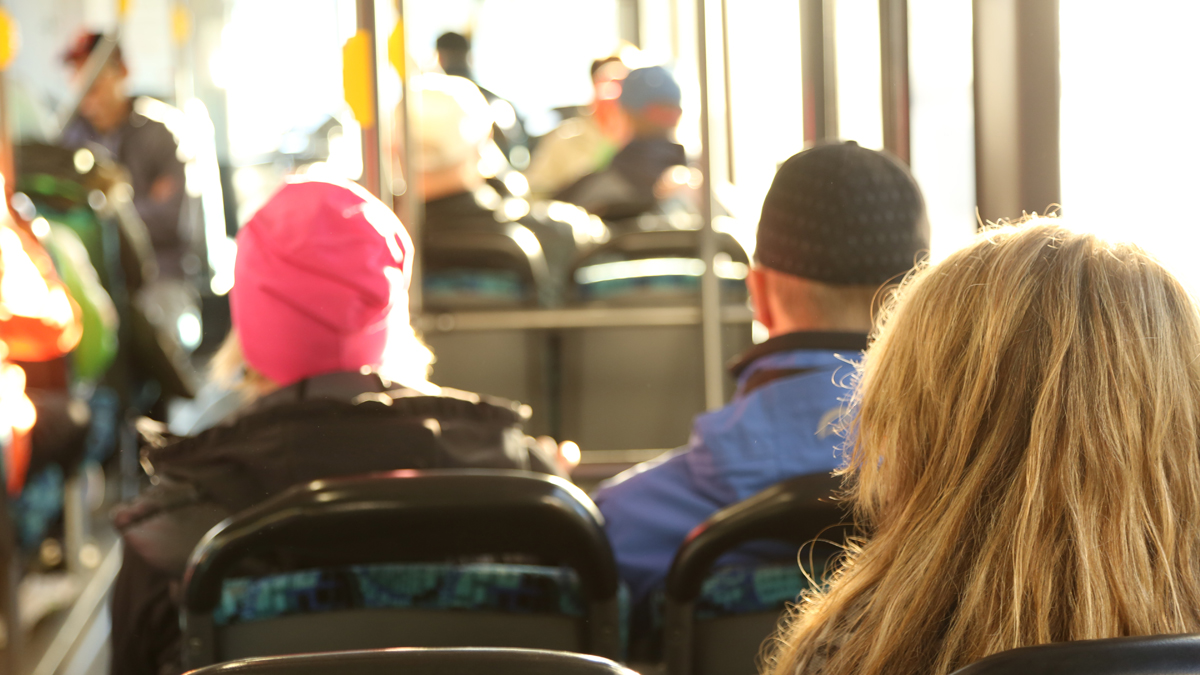Sitra’s resource wisdom pilot projects are related to green housing, public transport use and more efficient soil use.
Three pilot projects have been selected for further development based on trials conducted as part of the Towards Resource Wisdom initiative run by Sitra and the City of Jyväskylä: Bussiloikka, which aims at increasing public transport use, Resource-Wise Housing, which is related to green living, and Massainfo, whose aim is to rationalise soil use.
During this year, 14 brief trials related to resource wisdom have been conducted in Jyväskylä with the aim of of identifying good ways of saving natural resources, reducing emissions and increasing well-being in the region. The ideas came from citizens in a search for suggestions run by Sitra last spring.
“The Finnish Environment Institute (SYKE) carried out a review of the trials, looking particularly at their impact on greenhouse emissions and use of natural resources, while also accounting for social effects. The pilot project choices were made based on that review and conversations carried out with the parties conducing the trials. The most important thing for us was to prove that there were opportunities for reducing emissions and resource use,” says Specialist Hanna-Leena Ottelin from Sitra.
The pilot projects are not a direct continuation of the trials, but are being refined into larger and more comprehensive projects in collaboration with Sitra.
In the Massainfo trial, the City of Jyväskylä developed an information service that would allow for more rational and efficient coordination of land masses. The soil resources dug out just of the construction sites owned by the City of Jyväskylä itself, which are then moved to other sites for further use of placement, are worth EUR 1.3 million annually. According to calculations made by the city, the new system could as much as halve the cost of transporting this soil while also reducing emissions and use of other resources. In the pilot project the service will be refined further in collaboration with soil recycling services from other areas. The aim is for the system to be widely adopted, to serve all earth-moving operators in Finland.
Meanwhile, the Resource-Wise Housing pilot started up with a trial related to lighting in housing companies, and it also made use of a trial related to saving water. The pilot project is conducted by the sustainable development association JAPA, with the aim of investigating and carrying out housing solutions that save resources and reduce emissions in Jyväskylä. In the trial, a lighting solution was implemented at Aatoksenkatu 6, which is estimated to save the housing company 75 per cent of energy. Meanwhile the apartment block that carried out water-saving changes was able to reduce its water consumption by one fifth.
“These simple actions demonstrate that even small changes can have a large impact on emissions, resource use and, above all, cost management for housing companies. In the pilot project, many other elements will be included in the concept of resource-wise housing,” says Ottelin.
The Bussiloikka pilot of the City of Jyväskylä is based on a public transport trial, in which citizens were offered the opportunity to use public transport for free for one day. The trial doubled the number of bus travellers and reduced greenhouse emissions by around sixty per cent. The aim of the Bussiloikka pilot is to encourage citizens to switch from driving to public transport by developing new solutions, such as using taxis for feed traffic and evening out the traffic peaks on buses. Based on a survey commissioned by Sitra from TNS Gallup, 55 per cent of people in Jyväskylä use public transport less than once a week, and 23 per cent never use it.
“All these pilots are being run in collaboration with Sitra, and their exact content is not yet known. They are important, because they tackle some of the biggest challenges related to resource wisdom. Housing and transport are the factors that, together with food production, cause the greatest consumption-related environmental impacts,” says Johanna Kirkinen, head of the Towards Resource Wisdom initiative at Sitra.
A lot of the publicity achieved by the initiative has been related to a food waste trial, which has taken off without any extra funding. A leftover lunch trial carried out by Kylän Kattaus caterers at Vaajakumpu school will expand in January to the Keski-Palokka and Jokela schools. Proposals for similar activities have been made so far in localities including Helsinki, Tampere, Lahti, Rovaniemi, Nokia and Mikkeli, and Minister of the Environment Ville Niinistö has praised the trial run by Sitra and the City of Jyväskylä and said that he hopes it will spread to other parts of Finland. Schools need no separate permits or arrangements to sell leftover food to outsiders at their own expense; the operations have been approved by the Finnish Food Safety Authority as ordinary catering activities. A review by the Finnish Environment Institute (SYKE) found that the leftover lunch trial significantly reduced greenhouse emissions and resource use, by up to 90 per cent. The saving per meal was estimated to be 1.3 kg CO2e and 4.3 kg of natural resources, which is equivalent to around 7 km of driving a car.
Based on a report by SYKE, all the resource-wise trials had positive environmental impacts, and most of them also contributed favourably to well-being and the economy.
“Trials and experiments, continuous reform and changes to existing structures and operating models are integral to working towards a more resource-wise society. It is the role of local councils, the government and other public bodies to facilitate and assist in the quick practical application of such innovations. We now have good experiences of this from Jyväskylä,” says Research Specialist Riina Antikainen from SYKE.
Besides the pilot projects, other initiatives related to resource wisdom will also be carried out in Jyväskylä next year. More information on those will be provided later.
Resource wisdom is a broader concept than resource efficiency; it holds that natural resource use and emissions can be reduced while enhancing regional well-being.

